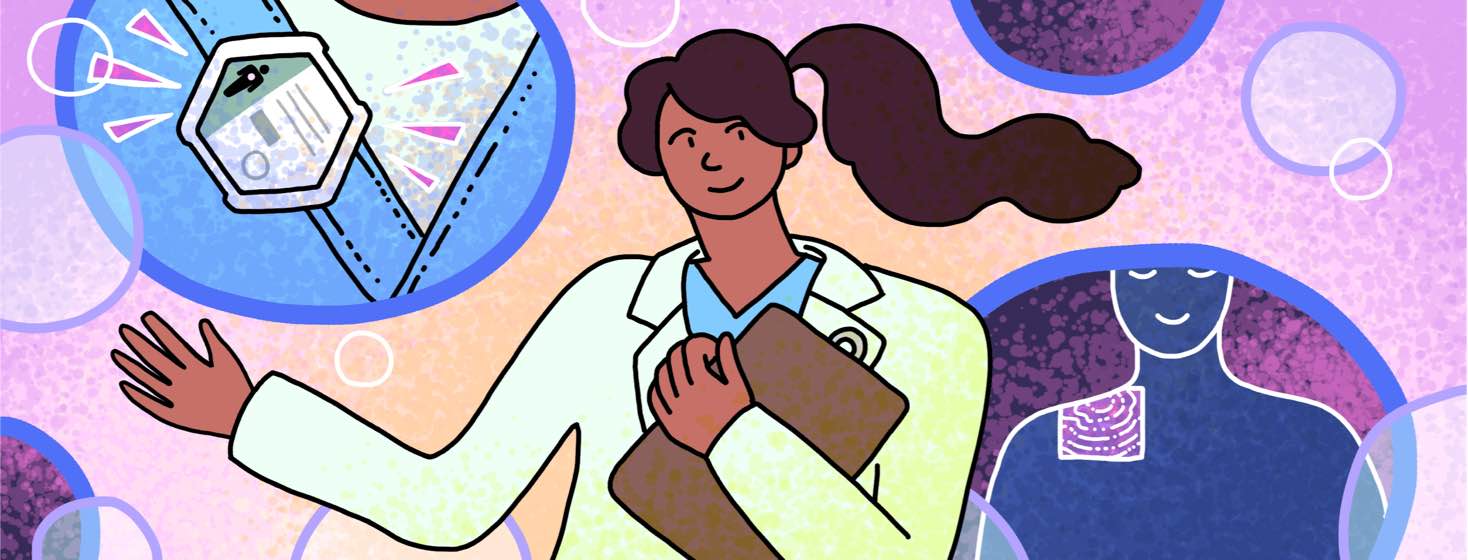Radiation Myths Debunked
As a radiation therapist, I am responsible for delivering radiation treatments to treat diseases such as skin cancer. I work alongside doctors, setting up the treatment area, verifying the treatment parameters, and most importantly, administering the dose of radiation.
Debunking myths about radiation therapy
Throughout my career, I've heard many myths about radiation, so let's debunk a few of them.
Myth #1: Everyone with cancer needs radiation
False. Radiation is a treatment option, but not the only cancer treatment. Radiation can be used alone or in combination with other treatments like surgery or chemotherapy. Not all cancers are treated with radiation. There are some cancers like melanoma that do not respond well to radiation. Patients can also decide they do not want to be treated with radiation, most of the time there are alternative options for them.
Myth #2: Radiation will make your hair fall out
False. Having radiation treatments will not make all of your hair fall out. When radiation is used in combination with chemotherapy, the chemotherapy drugs can cause the patient to lose their hair. Full hair loss, like a full bald scalp, is not caused by radiation.
The truth: radiation can cause hair loss in the area that is treated. If the site receiving radiation is on the scalp, hairline, beard, or other location with hair, the treatment can destroy the hair follicles in the treated skin. The hair most likely will not grow back in the treated area.
Myth #3: Radiation treatments will make me radioactive
False. External beam radiation treatments, including superficial therapies, do not make the patient radioactive. There is no radiation present once the machine completes the treatment.
The truth: there are treatments where radioactive seeds are implanted into the body to deliver a low dose of radiation to a particular area over time. These do make the patient radioactive. This treatment is very different, and your physician will make you aware of the treatment you will be receiving.
Myth #4: Being a radiation therapist is not safe for pregnant women
False. Radiation therapists are not exposed to any radiation. We step outside the room during the treatment. The treatment room walls and doors are lined with lead to prevent exposure to radiation to people outside the room. We also wear film badges that monitor if we are exposed to any radiation. I have been a radiation therapist for five years, and my lifetime occupational exposure to radiation is zero.
Myth #5: Your whole body gets radiation
False. The radiation is explicitly directed to a predetermined area. A lead shield outlines the area that is treated. We protect the body, thyroid, and eyes with an additional layer of lead shielding. The radiation isn’t directed at these other areas, but as an extra precaution, we protect them anyway.
Myth #6: Radiation and chemotherapy are always used together
False. Radiation and chemotherapy can be used together, but they do not have to be. When it comes to treating skin cancers, we do not use chemotherapy with superficial radiation. For the skin cancers we treat, it is not necessary to add chemotherapy. Chemotherapy has a systemic or widespread effect throughout the body. In comparison, radiation is site-specific and only has an impact on the area being treated.
Myth #7: All radiation treatments are the same
False. There is a wide variety of radiation treatments. They vary in strength, distribution, configuration, and technique. The way skin cancers are treated is different from how lung cancer is treated. Even the treatment for a basal cell on a patients’ nose will be different than a squamous cell on the same patient’s leg. There is not a one size fits all approach for radiation treatments. Everyone is different, as are their cancers, and each receives individualized treatment.

Join the conversation